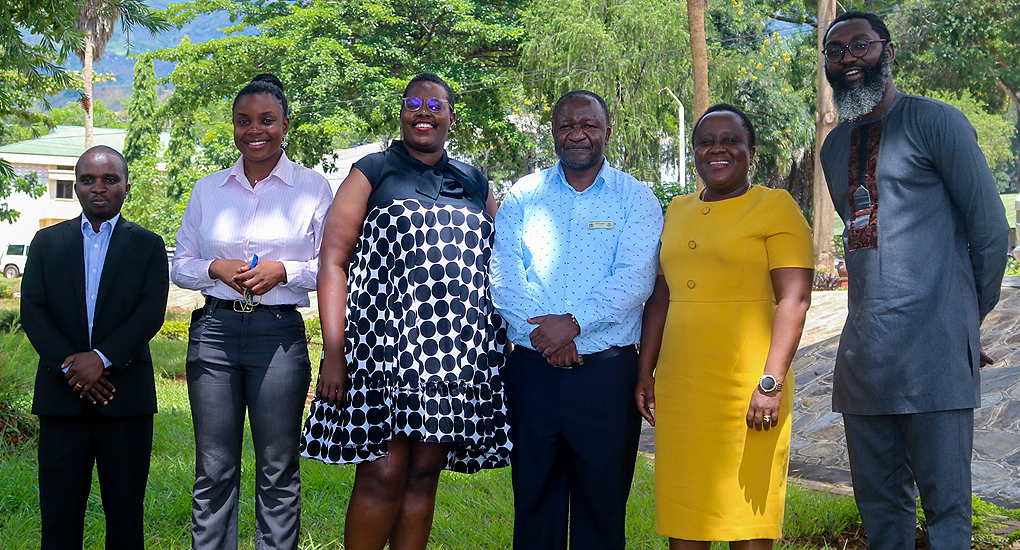SGCI News
“We are a force”: One year of implementing the O.R. Tambo Africa Research Chair for Viral Epidemics Sokoine University of Agriculture (SUA) hosts one of two O.R. Tambo Africa Research…
“We are a force”: One year of implementing the O.R. Tambo Africa Research Chair for Viral Epidemics
Sokoine University of Agriculture (SUA) hosts one of two O.R. Tambo Africa Research Chairs in Tanzania awarded in partnership with the National Research Foundation (NRF), Canada’s IDRC, Oliver and Adelaide Tambo Foundation and implemented through COSTECH. In March 2022, Prof Gerald Misinzo officially started implementing research and training activities under ORTARChI; the first ever such research chair awarded to the SUA.

The Research Chair is intended to contribute to community level One Health Security in the Eastern Africa region. The Chair is integrated into the SACIDS Foundation for One Health, a regional programme founded in 2008 by several universities and national research institutions in five SADC member states.
One year later, an implementation plan has been finalised and research activities have commenced with an impressive number of postgraduate students, and scientific and technical officers recruited to support the chair. Ten (10) PhDs and three (3) masters students, as well as one Postdoctoral Fellow are being mentored by the chair. Office and laboratory space has been provisioned by the university and a site has been identified for the building of new offices for the chair in the long-term.
There are clear synergies in being integrated into SACIDS. The chair is demonstrating impact in the region through training healthcare and community workers in Eastern Africa, having done so recently in Rwanda. This training involves the detection and testing of viral epidemics, such as Marburg. An online tool called Afyadata is being utilised to report disease outbreaks, informing response in real time.
In September 2022, Prof Misinzo addressed the 12th International Congress for Veterinary Virology (ESVV2022) in Belgium and participated in a panel on “Technical progress and One Health surveillance in agrifood systems” at FAO in Italy. In December the same year, the chair and his team presented the results of their research findings during the Tanzanian Veterinary Association’s (TVA) 40th Scientific Conference in Dodoma, Tanzania.
The research programme is designed to develop innovative One Health approaches through science and technology driven by genomics, molecular biology, and analytical epidemiology to improve the risk management of viral epidemics in Africa. To ensure sustainability of the chair, the leadership of SUA have embarked on a collaborative journey with other likeminded organisations and institutions within and beyond Africa.
The O.R. Tambo Africa Research Chairs Initiative (ORTARChI) combines political, development and higher education objectives. It aims to honour a leading figure in the development of African unity; have a catalytic impact on the development of research infrastructure in recipient countries; and contribute to knowledge production and high-end skills in alignment with AU Agenda 2063 and STISA 2024. Nine (9) O.R. Tambo Africa Research Chairs across six countries namely, Botswana, Burkina Faso, Ghana, Mozambique, Tanzania, and Zambia have been awarded. The NRF and South Africa’s Department of Science and Innovation (DSI) with core partners, the Oliver and Adelaide Tambo Foundation, and Canada’s International Development Research Centre (IDRC) have partnered with NRF sister agencies in the six countries and the universities to implement the initiative.
Related News
Voices of SGCI: Council leaders on the direction and ambition of SGCI 3
At the African Union’s Science, Technology and Innovation Week in Addis Ababa, earlier this month, leaders of science granting councils reflected on what SGCI Phase 3 represents for Africa’s science and innovation systems. From ownership and alignment to stewardship and sustainability, here are their voices…
Building Africa’s science future: inside the SGCI alliance
As Phase 3 of the Science Granting Councils Initiative launches on the margins of the African Union Summit in Addis Ababa last week, the SGCI Alliance Chair explains why this moment marks a decisive turning point for African science. Cephas Adjei Mensah describes what is…
Open call: Support for science granting councils in Sub-Saharan Africa
The International Development Research Centre (IDRC), through the Science Granting Councils Initiative (SGCI), has launched a call for proposals to support science granting councils in Sub-Saharan Africa in the establishment and operationalisation of the Capacity Strengthening Hub under Phase III of the SGCI-3. The Hub…
SGCI funded projects
Rwanda’s integrated approach to sustainable agriculture and nutrition
Project Titles & Institution Areas of Research Number of Projects being funded Project Duration Grant Amount In-Kind Distribution Council Collaboration with other councils





